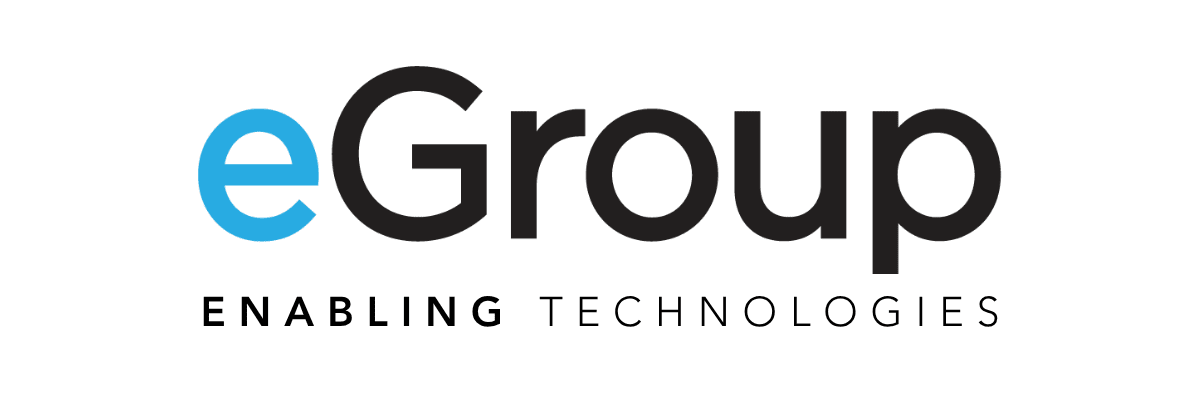Harnessing Custom-Built AI to Accelerate Redaction and Drive Efficiency for the University of Pittsburgh
About This Project
University of Pittsburgh
Client
1787
Established in
Pittsburgh, PA
Location
Partner Technologies Used
Azure AI Language Service, Power Apps, Power Automate, Azure Queue Storage, Azure Blob Storage, SharePoint Online
Project Highlight
Redaction time reduced from 1–2 days of manual work to just 2–3 hours (more info on RedactAI can be found here)
Overview
How eGroup Enabling Technologies helped the University of Pittsburgh’s Office of Sponsored Programs implement RedactAI, a purpose-built AI solution to increase efficiency and streamline the redaction of sensitive document content.

Challenge
“A real challenge emerged, though, around how to make these records available and searchable while protecting the documents and information that we’re allowing other faculty to see. We had to make sure we could redact proprietary research information, but in a way that would maintain the structure and spirit of the proposal so it remains useful.”
Dr. Jennifer Woodward (Vice Chancellor - Sponsored Programs & Research Operations, University of Pittsburgh)
The University of Pittsburgh ranks among the top universities worldwide for its exceptional research strength, which is a key source of the University’s funding. Tasked with overseeing and securing external sponsored programs and research funding for the University, the Office of Sponsored Programs (OSP) works with faculty, staff, and students across the University. As part of this unit, the Pitt Research Concierge Services has been created to develop new resources to reduce the administrative burden on faculty, enhance the competitiveness of research proposals, and expand the scope and reach of research development services.
One identified service was to provide faculty with successful historical proposals that could be used as guides and to increase the rate of success of getting the projects funded by sponsors. These historical documents, however, contain large amounts of confidential research information that would need to be redacted before the proposals could be reused. Given the size of these documents, manual redaction was not an option and the OSP team needed an automated and easy-to-use redaction solution to prepare documents for faculty use.

“Ultimately, our goal was to provide a service to help faculty be more successful in writing and getting proposals funded for their research,”
Dr. Jennifer Woodward (Vice Chancellor - Sponsored Programs & Research Operations, University of Pittsburgh)
“Ultimately, our goal was to provide a service to help faculty be more successful in writing and getting proposals funded for their research,” says Dr. Jennifer Woodward, Vice Chancellor for Sponsored Programs and Research Operations at the University of Pittsburgh. “A real challenge emerged, though, around how to make these records available and searchable while protecting the documents and information that we’re allowing other faculty to see. We had to make sure we could redact proprietary research information, but in a way that would maintain the structure and spirit of the proposal so it remains useful.” Lacking the capacity to manually redact details across hundreds of proposals, this meant finding a solution that would automate the redaction process and do so with the underlying intelligence to correctly identify potential sensitivities within each document, independently of one another.

Solution
With a commitment to pioneering the next wave of data, artificial intelligence (AI), applications, and automation solutions, eGroup Enabling Technologies was an ideal partner to help University of Pittsburgh’s OSP develop a solution to its redaction challenge.
“At eGroup, we recognize that AI and related data are going to be critical to organizations’ technical plans, as well as the need for tools like Power Platform that enable interaction with that data,” explains Kai Andrews, Director of Data and AI at eGroup Enabling Technologies. “These factors—data, AI, and Power Platform—combined with a humancentric approach that aims to help change the way people work, are at the center of our methodology. We take a holistic approach across these four areas to ensure that we’re applying technology in the best way to solve our clients’ business problems.”
After working to thoroughly understand the OSP’s use case and business needs surrounding proposal redaction, eGroup tested an initial implementation with an existing GitHub solution that leveraged Power Automate and Power Apps to identify and redact terms within a document. Ultimately, it was not powerful or “smart” enough to properly address the challenge without extensive human intervention.

“Developing novel applications using cutting-edge technologies is a complex process but we were able to leverage aspects of Azure and the Power Platform to produce an elegant integrated solution to the client’s needs,”
Cameron Prill (Data & AI Architect, eGroup)
“Without AI, the biggest problem was scalability and throughput. The initial tool could only redact a single term at a time, which did not help accelerate the process for a 400-page document,” explains Cameron Prill, Data and AI Architect at eGroup Enabling Technologies. “What we needed was a more intelligent capability to identify and redact a whole collection of terms at once without the user needing to enter them each time.”
The eGroup team looked to build on the concepts of the initial solution, creating a custom Power App front-end that would incorporate newly available personal identifiable information (PII) Identification APIs/client libraries from the Azure AI Language service. An early proof of concept (POC) was critical in validating that the technical solution was addressing the OSP’s business needs and that the Azure AI functions could return an accurately redacted document (for very complex, highly varied, hundred-page proposals) in a cost-effective manner. The combined eGroup/Pitt team then shifted to an agile development process, collaboratively building a proprietary interface and automation that would allow the OSP team to iterate on the redaction process, viewing AI-generated PII terms, adjusting the term list as needed and re-executing the redaction process until the document redaction was comprehensive and complete.
“Developing novel applications using cutting-edge technologies is a complex process but we were able to leverage aspects of Azure and the Power Platform to produce an elegant integrated solution to the client’s needs,” says Lance Hughes, Data and AI Architect at eGroup.

Results
The process automation delivered by the AI redaction tool (RedactAI) has driven efficiency and productivity gains for the Office of Sponsored Programs, allowing the team to find additional ways to support the research community at the University. The redaction process that would have taken the OSP team members a whole day (or even two) of work per proposal to complete manually can now be completed in just 2-3 hours. The success and benefits gained from the redaction solution have opened the door to additional enhancements in the future.
After initial success with the University of Pittsburgh, the eGroup Enabling Technologies team is excited to scale its redaction solution to customers with similar needs and explore additional use cases where it can be transformative. While every AI implementation requires a certain level of personalization, having a tested framework will increase the speed of deployment and provide a powerful, intelligent solution to customers.
“This solution not only provides the faculty with a resource they need to be successful in their research endeavors but has enormous potential to impact other areas of the institution and additional use cases,”
Dr. Jennifer Woodward (University of Pittsburgh)



